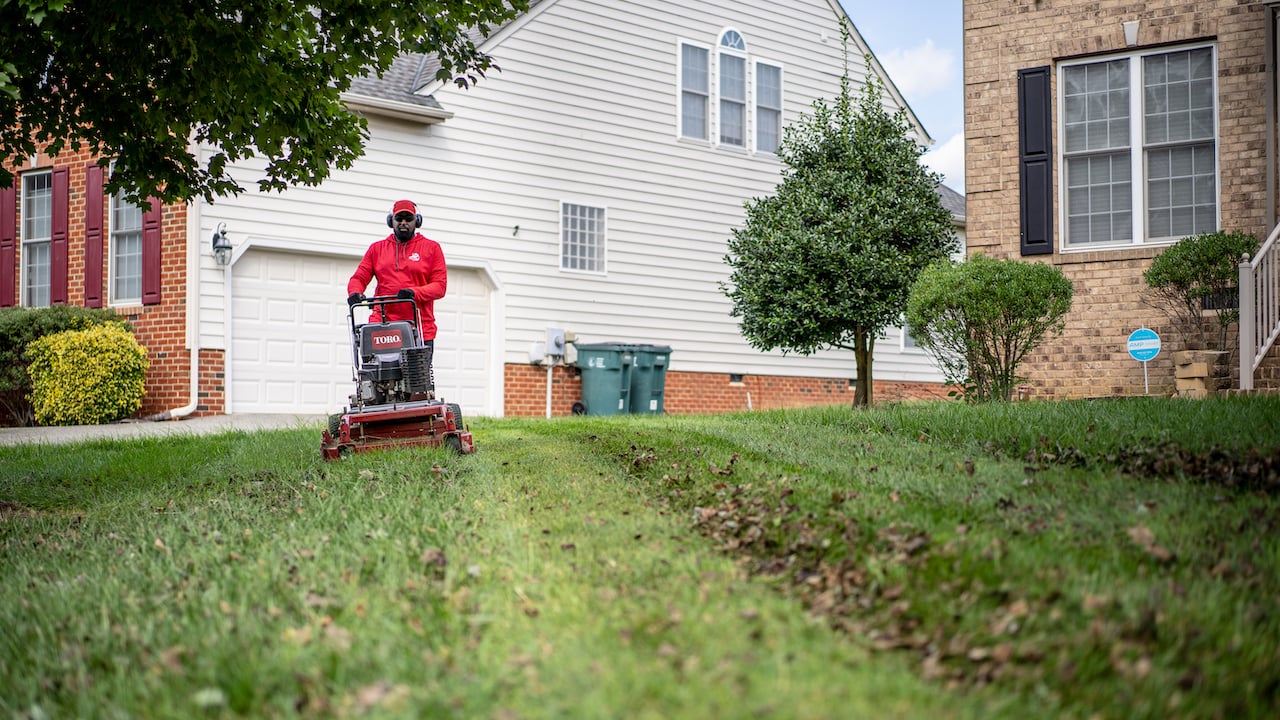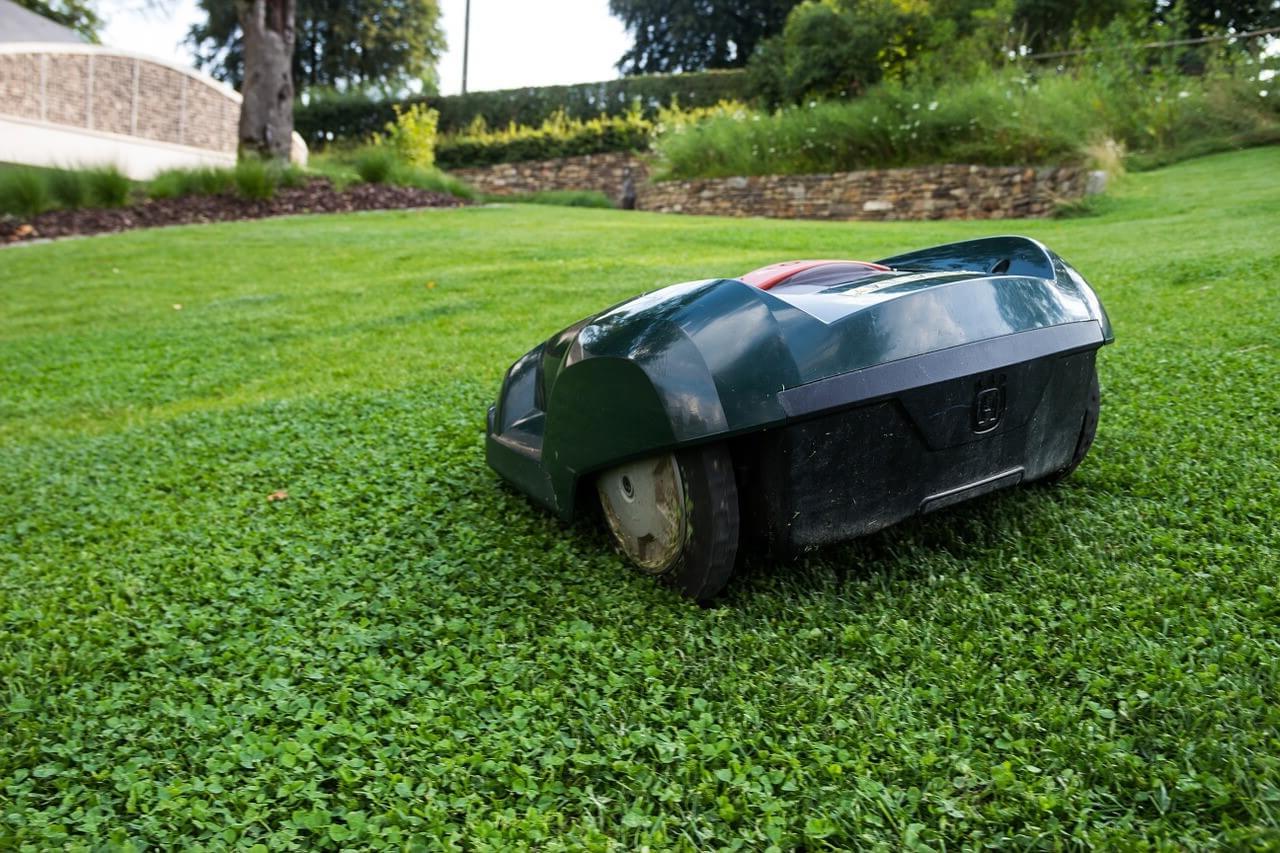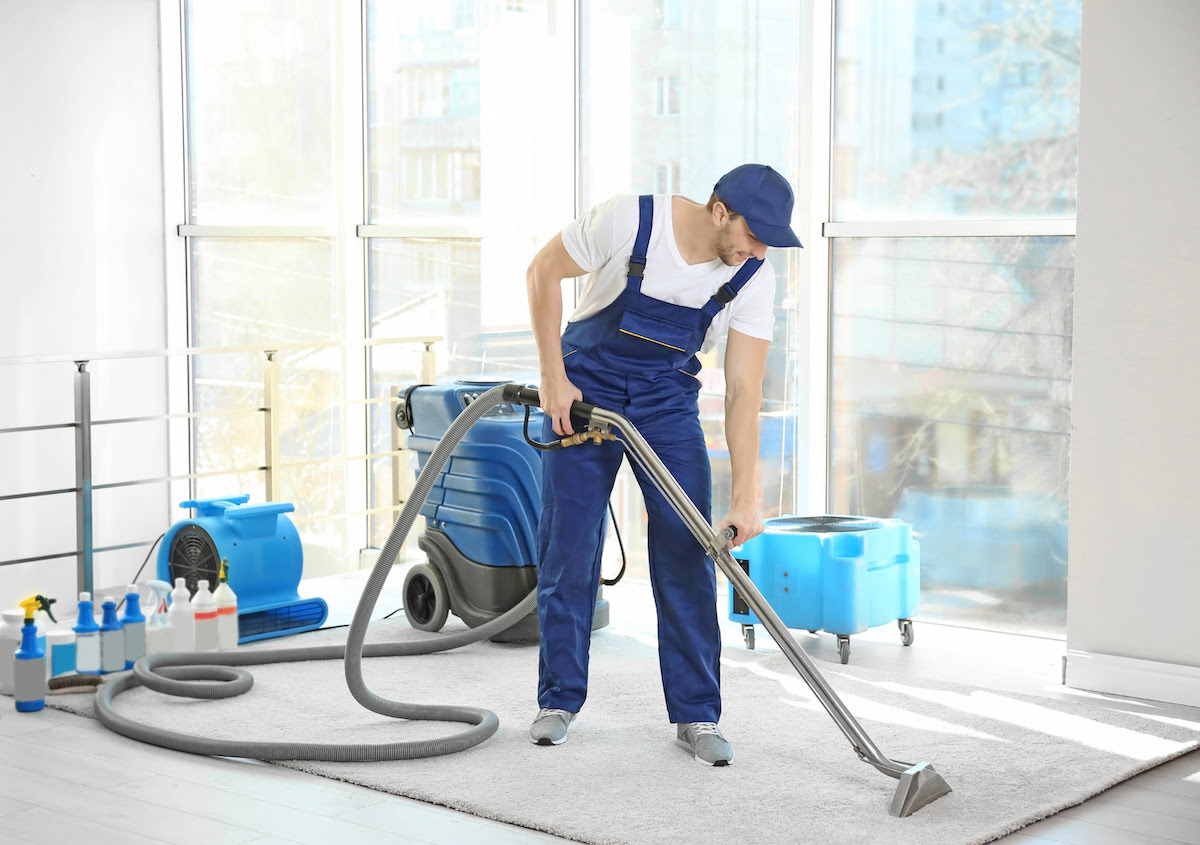Home>Garden Essentials>What Equipment Is Needed To Start A Lawn Care Business


Garden Essentials
What Equipment Is Needed To Start A Lawn Care Business
Modified: October 20, 2024
Start your own lawn care business with the essential garden equipment. Find out what tools you need to get started and succeed in the industry.
(Many of the links in this article redirect to a specific reviewed product. Your purchase of these products through affiliate links helps to generate commission for Storables.com, at no extra cost. Learn more)
Introduction
Starting a lawn care business can be an exciting venture for those with a passion for gardening and outdoor maintenance. Whether you’re looking to provide services to residential customers or tackle larger commercial projects, having the right equipment is essential to ensure your success. From mowing and trimming to irrigation and landscaping, each aspect of lawn care requires specific tools to get the job done efficiently and effectively.
In this article, we will explore the various types of equipment needed to start a lawn care business and discuss their importance in maintaining beautiful and well-manicured landscapes. By understanding the different tools and their functions, you’ll be equipped with the knowledge to invest wisely and provide top-notch services to your clients.
So, let’s dive right in and take a look at the essential equipment required for a thriving lawn care business.
Key Takeaways:
- Starting a successful lawn care business requires high-quality equipment such as mowers, trimmers, blowers, and safety gear. Investing wisely in the right tools is essential for delivering exceptional service to clients and standing out from the competition.
- In addition to mowing and trimming tools, irrigation equipment, and transportation gear, prioritizing safety measures and maintaining tools regularly are crucial for building trust with clients and ensuring the longevity of equipment.
Lawn Mowing Equipment
The cornerstone of any lawn care business is reliable and efficient mowing equipment. This includes a high-quality lawn mower, capable of handling the volume and size of the lawns you’ll be working on. Consider factors such as the cutting width, engine power, and whether you prefer a push mower or a ride-on model. Additionally, investing in a backup mower is crucial to avoid downtime in case of unexpected repairs or maintenance.
Alongside the mower, you’ll also need a sturdy trimmer or edger to give lawns a clean and polished look. These tools are essential for cutting grass along the edges of sidewalks, driveways, and flower beds, creating a neat and well-defined border.
Trimming and Edging Tools
To complement your lawn mower, having a reliable trimming tool such as a string trimmer or a brush cutter is essential. These tools are designed to reach areas that mowers can’t access, like around trees, fences, and landscaping features. The right trimming tool will make it easier to maintain even the trickiest spots, ensuring a consistently well-manicured lawn.
Similarly, a quality edging tool is necessary to create defined boundaries between lawn areas and hardscapes. This could be achieved with a manual edger or a power edger, both capable of cutting clean lines and preventing grass from encroaching on pathways or flower beds.
Key Takeaways:
- Starting a successful lawn care business requires high-quality equipment such as mowers, trimmers, blowers, and safety gear. Investing wisely in the right tools is essential for delivering exceptional service to clients and standing out from the competition.
- In addition to mowing and trimming tools, irrigation equipment, and transportation gear, prioritizing safety measures and maintaining tools regularly are crucial for building trust with clients and ensuring the longevity of equipment.
Lawn Mowing Equipment
When it comes to lawn care, having the right mowing equipment is essential. A high-quality lawn mower is the foundation of any successful lawn care business. With so many options available, it’s important to consider your specific needs and the type of lawns you’ll be working on.
First and foremost, you’ll need to choose between a push mower or a ride-on model. Push mowers are great for smaller properties and areas with narrow spaces, while ride-on mowers are ideal for larger lawns and commercial projects where efficiency is key. Consider the cutting width, engine power, and ease of maneuverability when selecting a mower that suits your needs.
Some popular types of lawn mowers include:
- Walk-behind mowers: Easy to operate and maneuver, walk-behind mowers come in various configurations such as gas-powered, electric corded, or battery-operated.
- Ride-on mowers: Designed for larger lawns, ride-on mowers offer comfort and increased productivity. They come in different sizes and features, including zero-turn mowers for precise maneuvering and grass collection systems for efficient cleanup.
- Robotic mowers: The latest innovation in lawn care, robotic mowers are programmed to autonomously mow lawns, freeing up time for the operator to focus on other tasks. They are best suited for smaller areas and require minimal maintenance.
In addition to the main lawn mower, it’s important to have a backup option. Equipment downtime can impact your business, so having a spare mower will ensure that you can continue working in case of repairs or maintenance. It’s also a good idea to invest in sharpening tools to keep your mower blades sharp for a clean and precise cut.
Trimming and Edging Tools
In addition to mowing, trimming and edging are essential steps in achieving a professionally manicured lawn. These tasks require specialized tools that can reach areas where mowers cannot, such as around trees, fences, and landscaping features. Investing in reliable trimming and edging tools will help you achieve precise and neat results.
One of the most popular trimming tools is the string trimmer, also known as a weed eater or weed whacker. Powered by either gas, electricity, or batteries, string trimmers use a rotating nylon string to cut through grass and weeds in hard-to-reach areas. They are lightweight and easy to handle, allowing you to trim along edges, around obstacles, and in tight corners.
There are two main types of string trimmers: curved shaft and straight shaft. Curved shaft trimmers are commonly used for light-duty tasks and are more maneuverable, while straight shaft trimmers are ideal for heavy-duty trimming and can reach farther distances.
In addition to string trimmers, brush cutters are another option for tackling thicker vegetation and overgrown areas. These powerful tools feature a metal cutting blade that can handle dense weeds, brush, and small trees. Brush cutters are typically gas-powered and are designed for more demanding jobs.
To create clean boundaries between your lawn and other areas, such as flower beds and driveways, an edging tool is necessary. Manual edgers, which resemble a half-moon shape, are perfect for creating precise lines and curves. They require physical effort but provide excellent control for shaping and defining edges. Power edgers, on the other hand, are motorized tools that make the edging process faster and less strenuous. They come in various styles, including gas-powered, electric, and battery-operated options.
By investing in reliable trimming and edging tools, you’ll have the capability to tackle intricate areas and achieve a professional finish for your clients’ lawns. These tools, combined with proper techniques, will help you create well-groomed landscapes that stand out.
Blower and Leaf Vacuum
Maintaining a pristine lawn isn’t just about mowing and trimming; it’s also important to keep it clean and well-maintained. This is where a blower and leaf vacuum come in handy. These tools help you efficiently remove leaves, debris, and grass clippings, preventing them from compromising the appearance of the lawn.
A blower is a versatile tool that uses a powerful jet of air to blow leaves, grass clippings, and other debris off the lawn, sidewalks, and driveways. It can also be used to clear out gutters and remove debris from hard-to-reach areas. Blowers are available in different types, including handheld, backpack, and wheeled blowers. Consider the size of the areas you’ll be working on and the power you’ll need to choose the appropriate blower for your business.
Leaf vacuums, on the other hand, provide the added benefit of vacuuming up debris instead of just blowing it around. These tools are equipped with a suction mechanism that collects the leaves and deposits them into a collection bag or container. Leaf vacuums are particularly useful during the fall season when leaves are abundant. They save you time and effort by eliminating the need to manually rake and bag fallen leaves.
Some leaf blowers also come with a mulching feature, which shreds the leaves into tiny pieces. This mulched material can then be used as a natural fertilizer or added to compost piles. Mulching reduces the volume of leaves and makes disposal easier.
When choosing a blower or leaf vacuum, consider factors such as power source, noise level, weight, and ease of use. Battery-powered options offer convenience and portability, while gas-powered models provide more power for larger properties. It’s important to strike a balance between power and comfort to ensure a positive user experience.
Investing in a blower and leaf vacuum will not only keep the lawns you maintain looking tidy but also save you time and effort in the cleanup process. These tools are essential for a well-rounded lawn care business and will give you a competitive edge in providing top-notch services to your clients.
Spraying Equipment
Spraying equipment is crucial for efficient and effective lawn care, especially when it comes to weed control, fertilization, and pest management. These tools allow you to apply herbicides, pesticides, fertilizers, and other treatments evenly and accurately across lawns and landscapes.
One of the most commonly used spraying tools is the backpack sprayer. As the name suggests, a backpack sprayer is worn on the back, allowing you to carry the necessary liquid and move freely around the property. These sprayers are available in various sizes and capacities, with adjustable nozzles that allow you to control the spray pattern and flow rate.
Another type of sprayer is the handheld sprayer, which is smaller and more compact. Handheld sprayers are great for spot treatments or for reaching difficult areas that are not easily accessible with other equipment. They are lightweight and easy to handle, making them ideal for smaller lawns and targeted applications.
For larger properties or commercial projects, tow-behind sprayers are a popular choice. These sprayers can be attached to a garden tractor or ATV, allowing for efficient coverage over large areas. Tow-behind sprayers often have a larger capacity and wider spray width, making them suitable for large-scale applications.
When selecting spraying equipment, it’s important to choose high-quality sprayers made of durable materials to ensure longevity and reliability. Look for sprayers with adjustable pressure settings to regulate the spray intensity and ensure even application. Additionally, consider whether you prefer manual or battery-powered sprayers for ease of use and convenience.
Safety is a crucial aspect when working with spraying equipment. Make sure to wear appropriate protective gear, including gloves, goggles, and a mask, to protect yourself from chemicals and potential spray drift. Familiarize yourself with the proper handling and application techniques for different treatments to ensure effective and responsible use.
By investing in quality spraying equipment, you’ll have the ability to provide essential services such as weed control, pest management, and fertilization. These tools will allow you to efficiently and accurately apply treatments, helping your clients achieve healthy and vibrant lawns and landscapes.
Invest in quality lawn mowers, trimmers, blowers, and a reliable truck or trailer to transport equipment. Good equipment is essential for a successful lawn care business.
Irrigation Tools
Proper irrigation is essential for maintaining healthy lawns and landscapes. Investing in the right irrigation tools will help you efficiently and effectively deliver water to plants, ensuring they receive the necessary hydration for optimal growth and vitality.
One of the main irrigation tools is a sprinkler system. There are various types of sprinkler systems available, including stationary sprinklers, oscillating sprinklers, and impact sprinklers. Stationary sprinklers cover a fixed area and are suitable for smaller lawns, while oscillating and impact sprinklers provide coverage over a larger area through a rotating or pulsating mechanism.
In addition to traditional sprinkler systems, consider investing in drip irrigation systems. Drip irrigation involves the use of tubing and emitters to deliver water directly to the plants’ root zones. This method reduces water waste by minimizing evaporation and ensuring precise water distribution. Drip irrigation systems are particularly beneficial for garden beds, shrubs, and trees.
To effectively manage irrigation systems, consider installing irrigation controllers or timers. These devices allow you to set specific watering schedules and durations, optimizing water usage and reducing the risk of overwatering. Some controllers come with smart technology, allowing for remote control and programming via mobile devices or weather sensors, ensuring water is only applied when needed.
Ensuring proper distribution of water requires the use of sprinkler heads and nozzles. These components determine the pattern and intensity of water application. It’s important to choose the right type of sprinkler heads and nozzles based on the specific needs of the landscape, such as spray heads for smaller areas or rotor heads for larger spaces.
To maintain the effectiveness of irrigation systems, regular maintenance is necessary. This includes checking for leaks, adjusting sprinkler heads, and clearing any blocked or clogged nozzles. It’s also important to consider investing in rain sensors or soil moisture sensors. These devices detect rainfall or soil moisture levels and prevent unnecessary watering, conserving water and promoting resource efficiency.
By investing in quality irrigation tools, you’ll be able to provide your clients with well-maintained and properly irrigated landscapes. These tools will help you deliver water efficiently and conserve resources, while promoting the health and vitality of the plants and lawns you care for.
Landscape Maintenance Tools
When it comes to maintaining the overall beauty and health of landscapes, having the right landscape maintenance tools is essential. These tools will assist you in tasks such as pruning, mulching, planting, and general upkeep of outdoor spaces.
One of the key landscape maintenance tools is a reliable pair of pruning shears or secateurs. These handheld tools are designed for trimming and shaping shrubs, hedges, and small trees. Look for shears with sharp blades and ergonomic handles to ensure comfortable and precise cutting.
In addition to pruning shears, a set of loppers is valuable for cutting larger branches and thicker vegetation. Loppers have longer handles and larger cutting jaws, providing the leverage needed for tougher cutting tasks. They are ideal for maintaining trees, shrubs, and overgrown vegetation.
A handheld garden rake is another essential tool for landscape maintenance. It is useful for raking and leveling soil, removing debris and leaves, and creating a smooth surface for planting and seeding. Look for a rake with sturdy tines and a comfortable handle to make the task easier.
Planting and transplanting require the use of a garden spade or shovel. These tools are indispensable for digging holes, moving soil, and dividing plants. Choose a spade or shovel with a strong and durable blade, as well as a comfortable handle for efficient and comfortable use.
Mulching is an essential part of landscape maintenance, and a mulching tool such as a pitchfork or garden fork is necessary for spreading mulch evenly. These tools allow you to break up and turn over mulch to promote even distribution, improve soil health, and suppress weed growth.
To keep lawns free from weeds, a weed puller or weeder tool is handy for removing weeds by the root. These tools save time and effort by eliminating the need for bending and stooping. Look for a weeder with a long handle and a pointed tip for easy weed extraction.
Garden carts or wheelbarrows are essential for transporting tools, plants, soil, and other heavy materials around the landscape. Choose a cart or wheelbarrow with sturdy construction, large capacity, and easy maneuverability to simplify the transportation process.
Other landscape maintenance tools to consider include a garden hose with a nozzle attachment for watering, a hand cultivator for loosening soil, and a leaf rake for gathering leaves and debris.
By equipping yourself with the right landscape maintenance tools, you’ll be able to efficiently and effectively care for and enhance the outdoor spaces you work on. These tools will assist you in maintaining a clean, well-groomed, and beautiful landscape that your clients will appreciate.
Read more: How Much To Start A Lawn Care Business
Safety Gear
When it comes to operating in a lawn care business, prioritizing safety is paramount. Protecting yourself from potential hazards can greatly reduce the risk of accidents and injuries. Having the right safety gear is essential to ensure your well-being while working on various lawn care tasks.
One of the most important pieces of safety gear is protective eyewear. Safety glasses or goggles with impact-resistant lenses shield your eyes from flying debris, dust, and chemicals. Whether you’re mowing, trimming, or operating other equipment, wearing protective eyewear is vital to prevent eye injuries.
In addition to eyewear, hearing protection is crucial for areas with loud equipment. Using earplugs or earmuffs can help reduce the risk of hearing damage caused by prolonged exposure to heavy machinery or loud noises. Protecting your hearing is important, especially when using equipment such as leaf blowers or chainsaws.
To protect your hands from cuts, abrasions, and chemical exposure, wearing sturdy work gloves is essential. Be sure to choose gloves that provide a balance of dexterity and protection, depending on the task at hand. For example, leather gloves are suitable for handling rough materials, while chemical-resistant gloves should be worn when working with fertilizers or pesticides.
Another critical safety gear item is the sturdy pair of work boots. Choose boots that provide ample ankle support and have non-slip soles for traction. This will help prevent slips, falls, and twisted ankles while navigating different terrains or operating machinery.
Protecting your skin from sun exposure is equally important. Wearing a wide-brimmed hat and applying sunscreen with a high SPF will help shield your face, neck, and arms from harmful UV rays. Opt for lightweight, breathable clothing that covers your body without compromising comfort.
In certain situations, respiratory protection may be necessary. When working with chemicals, dust, or airborne particles, wearing a well-fitted dust mask or respirator can prevent inhalation of harmful substances. It’s important to select the appropriate level of filtration based on the task at hand.
Lastly, when working with power tools or machinery, ensure that you adhere to all safety guidelines and instructions. Use guards and safety features provided with the equipment and avoid wearing loose clothing or jewelry that could get caught in the machinery.
Investing in and using the proper safety gear is essential for maintaining your well-being in the lawn care business. By prioritizing safety, you can ensure a productive and accident-free work environment, providing peace of mind for both you and your clients.
Transportation Equipment
When running a lawn care business, having reliable transportation equipment is crucial for efficiently moving yourself, your crew, and your tools from one job to another. The right transportation equipment not only ensures prompt and professional service but also allows you to carry all the necessary items to complete your work effectively.
One of the most common forms of transportation equipment for lawn care businesses is a trailer. A utility trailer provides ample storage space for tools, equipment, and supplies. Look for a trailer that is sturdy, has a suitable payload capacity, and is equipped with secure tie-downs to keep your equipment and materials safe while on the road.
Depending on the scope of your business, you may also consider investing in a truck or van to transport crew members and tackle larger projects. Trucks with a flatbed or cargo area offer versatility for carrying larger equipment such as ride-on mowers or heavy-duty tools. Vans with customizable interiors provide ample storage space and can be designed specifically for your needs.
For smaller operations, a pickup truck or SUV with covered storage or a bed cover can also serve as a reliable transportation option. These vehicles offer flexibility for transporting tools, equipment, and crew members while providing protection from the weather.
When choosing transportation equipment, consider factors such as fuel efficiency, towing capacity, and cargo space. Research different vehicle models to find the right balance between utility and cost-effectiveness that aligns with your business’s requirements.
Remember to keep your transportation equipment well-maintained, including regular servicing, tire checks, and safety inspections. This will help ensure that your vehicles are in good working condition and minimize the risk of breakdowns or accidents.
In addition to physical transportation equipment, utilizing digital tools such as GPS navigation systems or mobile apps can streamline your operations. These tools can optimize route planning, track mileage, and provide real-time updates to enhance efficiency and customer service.
Having reliable transportation equipment is essential for the success of your lawn care business. Whether it’s a trailer, truck, van, or a combination of vehicles, the right transportation equipment will enable you to provide efficient and professional service, ensuring that you and your team arrive at each job site on time and fully equipped.
Storage and Organization Systems
Proper storage and organization are vital for maintaining a well-run and efficient lawn care business. With a multitude of tools, equipment, and supplies, investing in the right storage and organization systems will help you save time, ensure equipment longevity, and improve overall productivity.
One of the key storage solutions is a secure and weather-resistant storage shed or garage. These structures provide a designated space for storing larger equipment such as lawn mowers, trimmers, and blowers. Look for storage options made of durable materials, equipped with locks or security features to protect your valuable equipment from theft.
Within your storage shed or garage, consider utilizing wall-mounted racks, shelves, and pegboards to maximize vertical space. These systems allow you to neatly store hand tools, smaller equipment, and accessories, keeping them easily accessible and reducing the risk of clutter.
For smaller tools and supplies, invest in sturdy toolboxes or tool chests. These portable storage solutions offer compartmentalized sections to keep your tools organized and protected during transportation. Consider toolboxes with dividers or removable trays for added convenience.
An efficient way to organize and transport smaller items such as screws, nails, and small parts is by using storage bins or modular storage systems. These containers come in various sizes and can be stacked or connected to create a customized storage solution. Labeling bins or using clear containers allows for easy identification and access.
For hoses and cables, utilizing wall-mounted hose reels or cord organizers is highly recommended. These systems keep hoses and cords neatly coiled, preventing kinks or tangles that can cause damage. They also make it easier to transport and store these items when not in use.
Investing in a dedicated space for your inventory, such as a stockroom or storage cabinets, is also beneficial. This area can be used to store fertilizers, pesticides, and other chemicals in a safe and organized manner. Implement proper labeling and ensure that storage areas comply with local regulations and safety guidelines.
Utilizing a digital inventory management system can also enhance organization and efficiency. These systems allow you to track and manage inventory levels, streamline ordering processes, and ensure you have the necessary supplies on hand when needed.
By investing in effective storage and organization systems, you’ll save time searching for tools and equipment, reduce the risk of damage or loss, and create a professional and efficient workspace. A well-organized business not only improves productivity but also leaves a positive impression on your clients.
Miscellaneous Tools and Supplies
In addition to the essential equipment already discussed, there are various miscellaneous tools and supplies that support the overall functionality and success of a lawn care business. These tools and supplies may seem small or insignificant, but they play a crucial role in ensuring smooth operations and delivering high-quality service to your clients.
One of the important miscellaneous tools is a soil test kit. This kit allows you to analyze the composition and pH level of the soil, helping you determine the appropriate fertilizers and soil amendments needed for optimal plant health. Conducting regular soil tests ensures that you provide the right nutrients to maintain healthy lawns and landscapes.
A set of hand tools, including a garden trowel, hand pruners, and a weeding tool, is essential for various tasks such as planting, trimming, and removing weeds. These tools provide precision and control when working on smaller areas or delicate plants.
Investing in a quality sharpening tool or file is important for maintaining the cutting edges of your tools. Regular sharpening not only improves their performance but also prolongs their lifespan. Keeping your tools sharp ensures clean and precise cuts, leading to healthier and more attractive plants.
Another miscellaneous item to consider is a moisture meter. This tool measures the moisture content in the soil and helps you determine when to water and how much water to provide, preventing under or over watering. Monitoring soil moisture is vital for plant health and efficient water usage.
Protecting fragile plants and delicate flowers during transportation is crucial. Consider investing in plant carriers or plant caddies to safely transport potted plants without causing damage or stress. These carriers provide stability and protection, preventing plants from tipping over or getting damaged while in transit.
Additional supplies to have on hand include gardening gloves, plant labels, plant ties, and garden twine. Gloves protect your hands from cuts, thorns, and irritants, while plant labels and ties help with organization and identification of different plant species or varieties. Garden twine is useful for securing plants to stakes or trellises, providing support and promoting healthy growth.
Lastly, having a supply of cleaning and disinfecting solutions is essential for maintaining cleanliness and preventing the spread of diseases. Disinfecting tools, such as pruning shears, after each use helps minimize the risk of spreading pathogens from one plant to another.
By ensuring you have these miscellaneous tools and supplies on hand, you’ll be prepared for any task that arises in your lawn care business. These small but significant items contribute to the overall efficiency, professionalism, and success of your operations.
Read more: How To Start An Insulation Business
Conclusion
Starting a lawn care business requires not only a strong passion for gardening but also the right equipment to get the job done efficiently and effectively. Whether you’re mowing lawns, trimming hedges, or providing irrigation services, having the appropriate tools and supplies is essential for delivering top-notch service to your clients.
In this article, we’ve explored the ten key categories of equipment needed to start a successful lawn care business. From mowing equipment to irrigation tools, each category plays a crucial role in ensuring the maintenance and enhancement of beautiful landscapes.
Investing in high-quality lawn mowing equipment, trimming and edging tools, blowers, and leaf vacuums allows you to achieve a well-manicured appearance. Spraying equipment and irrigation tools help you maintain plant health, control weeds, and ensure proper hydration. Landscape maintenance tools and safety gear contribute to efficiency and protect your well-being while working. Transportation equipment, storage and organization systems, and miscellaneous tools and supplies further enhance productivity and support the day-to-day operations of your business.
Remember, in addition to having the right equipment, it’s important to prioritize safety measures and regularly maintain your tools and machinery. By providing a safe and professional service, you can build trust with your clients and ensure the longevity of your equipment.
As a lawn care business owner, your success depends on your ability to deliver outstanding results, and that starts with the equipment you use. By investing wisely in the right tools, you can set yourself apart from the competition and provide exceptional lawn care services that exceed your clients’ expectations.
So, equip yourself with the knowledge, skills, and the right equipment, and your lawn care business will flourish, creating beautiful and well-maintained landscapes for years to come.
Ready to dive deeper into the world of lawn care and gardening? If you've ever wondered about the water flow rate of your garden essentials, our article on garden hoses will shed light on optimal usage for various gardening tasks. Meanwhile, for those aiming to refine their entrepreneurial skills in this field, our guide on running a successful lawn care business offers valuable insights and strategies to help you stand out and thrive.
Frequently Asked Questions about What Equipment Is Needed To Start A Lawn Care Business
Was this page helpful?
At Storables.com, we guarantee accurate and reliable information. Our content, validated by Expert Board Contributors, is crafted following stringent Editorial Policies. We're committed to providing you with well-researched, expert-backed insights for all your informational needs.













0 thoughts on “What Equipment Is Needed To Start A Lawn Care Business”